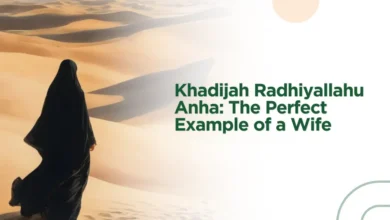Faith, Knowledge, and Deeds: The Three Foundations of Act in Islam
Faith, knowledge, and deeds are three fundamental aspects of actions in Islam. These elements form a complementary foundation that guides a Muslim’s life. Faith is the belief that underpins all actions, knowledge illuminates the path of life, and deeds are the tangible actions reflecting one’s faith and knowledge. By understanding and practicing these three elements, a Muslim can achieve a more meaningful and fulfilling life.
Faith(Iman)
Faith in Islam is defined as a firm belief in Allah ﷻ, His angels, His books, His messengers, the Day of Judgment, and destiny, both good and bad. Faith is the primary foundation that every Muslim must possess. Without faith, one’s actions would lack clear direction and purpose. Faith provides strength and motivation for a Muslim to live according to Allah’s teachings. Examples of applying faith in daily life include constantly remembering Allah ﷻ in every action, praying, and maintaining behavior and attitudes aligned with Islamic values.
The Quran underscores the importance of faith:
إِنَّ الَّذِينَ آمَنُوا وَالَّذِينَ هَاجَرُوا وَجَاهَدُوا فِي سَبِيلِ اللَّهِ أُولَٰئِكَ يَرْجُونَ رَحْمَتَ اللَّهِ ۚ وَاللَّهُ غَفُورٌ رَحِيمٌ
“Indeed, those who have believed and those who have emigrated and fought in the cause of Allah – they expect the mercy of Allah. And Allah is Forgiving and Merciful” (Al-Baqarah: 218).
Knowledge(Ilm)
Knowledge in Islam is highly valued and considered a means to draw closer to Allah ﷻ. Knowledge encompasses not only worldly matters but also religious and spiritual understanding. In Islam, seeking knowledge is an obligation for every Muslim, both men and women. The relationship between knowledge and faith is very close, as knowledge helps strengthen faith and provides clear guidance for living. Examples of seeking and using knowledge in daily life include studying the Quran and Hadith, attending religious classes, and applying the learned knowledge in everyday actions.
The Quran highlights the importance of knowledge:
يَرْفَعِ اللَّهُ الَّذِينَ آمَنُوا مِنْكُمْ وَالَّذِينَ أُوتُوا الْعِلْمَ دَرَجَاتٍ
“Allah will raise those who have believed among you and those who were given knowledge, by degrees” (Al-Mujadilah: 11).
Additionally, a hadith states:
طلبُ العلمِ فريضةٌ على كلِّ مسلمٍ
“Seeking knowledge is an obligation upon every Muslim” (Ibn Majah).
Deeds(Amal)
Deeds in Islam refer to the tangible actions performed by a Muslim. Deeds are proof of the existence of faith and knowledge, deeds without faith and knowledge become meaningless, but faith and knowledge without deeds become something without evidence. However, if faith and knowledge are not proven through deeds, they have no impact on a Muslim’s daily life. Without faith, deeds become meaningless actions. Similarly, without knowledge, deeds might be misdirected and not in line with Islamic teachings. There are two general types of deeds: ritualised deeds such as prayer and Hajj, and non-ritualised deeds such as helping the weak, smiling, giving alms, and so on. A balance between the two types of charity is best for a Muslim. Charity done sincerely for the sake of Allah ﷻ will bring blessings and goodness to the doer and others.
The Quran emphasizes the importance of righteous deeds:
مَنْ عَمِلَ صَالِحًا مِنْ ذَكَرٍ أَوْ أُنْثَىٰ وَهُوَ مُؤْمِنٌ فَلَنُحْيِيَنَّهُ حَيَاةً طَيِّبَةً ۖ وَلَنَجْزِيَنَّهُمْ أَجْرَهُمْ بِأَحْسَنِ مَا كَانُوا يَعْمَلُونَ
“Whoever does righteousness, whether male or female, while he is a believer – We will surely cause him to live a good life, and We will surely give them their reward [in the Hereafter] according to the best of what they used to do” (An-Nahl: 97).

Faith, knowledge, and deeds are three complementary elements in a Muslim’s life. By integrating these elements, a Muslim can live a more meaningful and fulfilling life, always staying on the path that pleases Allah ﷻ.
References:
Surat Al-Baqarah Ayat 218. (n.d.). Tafsir AlQuran Online. Retrieved July 18, 2024, from https://tafsirq.com/2-al-baqarah/ayat-218
Surat Al-Mujadilah Ayat 11. (n.d.). Tafsir AlQuran Online. https://tafsirq.com/58-al-mujadilah/ayat-11
Surat An-Nahl Ayat 97. (n.d.). Tafsir AlQuran Online. Retrieved July 18, 2024, from https://tafsirq.com/16-an-nahl/ayat-97#google_vignette
الدرر السنية – الموسوعة الحديثية – شروح الأحاديث. (n.d.). Dorar.net. https://dorar.net/hadith/sharh/126132







